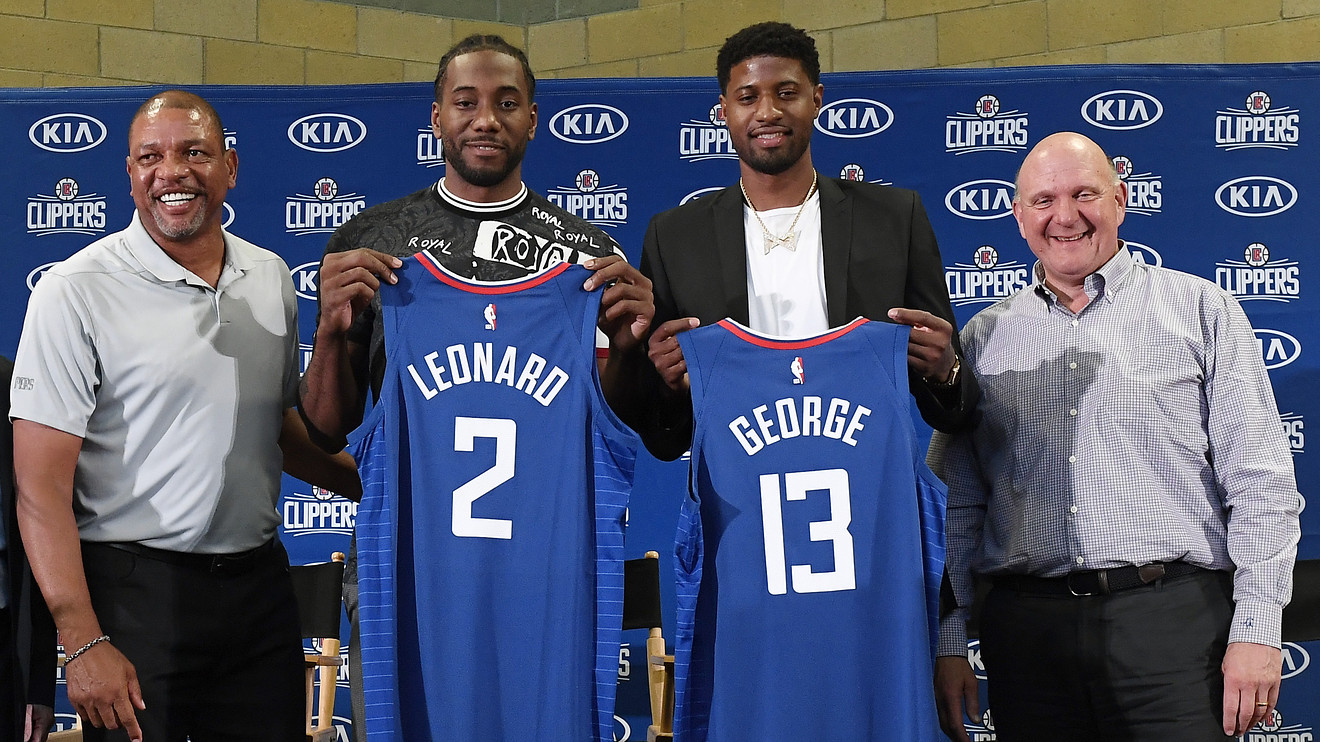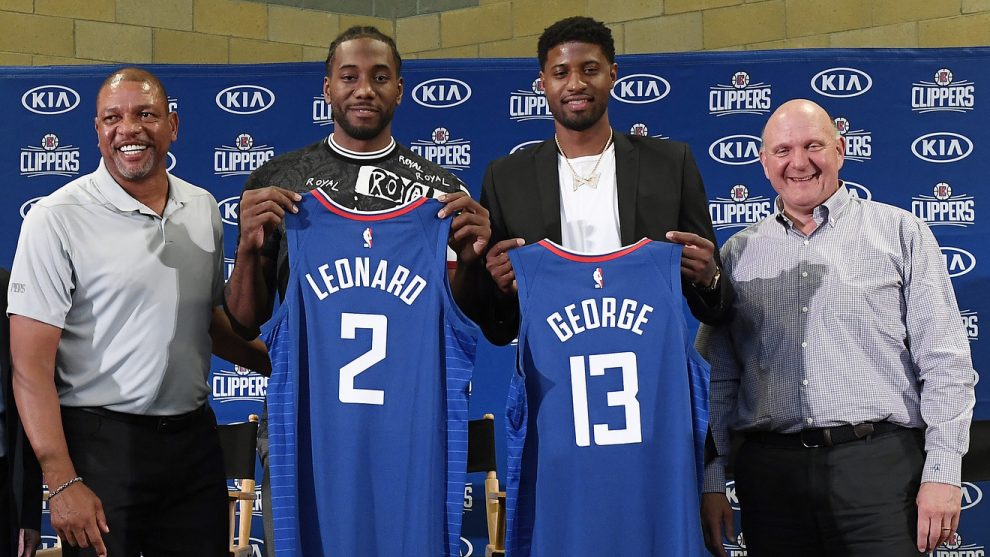
Former Microsoft CEO Steve Ballmer made waves in 2014 when he jumped out of retirement and purchased the NBA’s Los Angeles Clippers for a reported $2 billion.
Since then, he’s probably best known for jumping up and down on the sidelines at Clippers games and telling reporters that he doesn’t expect the team to make a lot of money.
Financier David Tepper bought the NFL’s Carolina Panthers in 2018 for a reported $2.2 billion, restaurant executive Tilman Fertitta picked up the Houston Rockets in 2017 for $2.2 billion and Alibaba co-founder Joseph Tsai bought the Brooklyn Nets for $2.35 billion.
Those were all blockbuster deals by any measure, but the truth is if you are rich and want to own one of the Big Four U.S. professional sports teams, the opportunities just aren’t there. Between 2000 and 2014, an average of five of the professional teams were sold annually, but between 2015 and 2018, only nine teams were sold in total, according to Sports Business Journal.
So what is a rich investor who wants to get into the game supposed to do?
Give a serious look to investing in professional or club sports overseas, especially in Europe. Not only are those growing markets but, as a foreign investor, you get a lot for your money, and you don’t have to spend the billions we are starting to see for some of these franchises in the NBA and NFL, in particular.
Downsides to U.S. ownership
When you look at the landscape for sports ownership in the U.S., there are two clear downsides: It’s a heavily regulated industry and there are a limited number of potential investments available. In the NBA, for instance, there are only 30 teams.
It’s a constrained market, and new potential owners are carefully vetted. Money is not everything.
What’s more, unless you can buy the whole organization, or at least the majority interest in a U.S. team, you’re going to be a minority owner. That means as a self-made multi-millionaire or family-office investor, you might be left with little influence over the management of an investment that you put millions into.
Contrast that with European football and basketball leagues. Unless you’re investing in the blue-chip teams at the very top of the Premier League, for example, there is tremendous value available. In fact, for $50 million to $100 million, investors in European clubs can truly participate at a very high level and enjoy all the perks of ownership.
And demand is growing as high net worth individuals and family offices priced out of the U.S. are turning to Europe, along with sovereign wealth investments from China and across Asia. You’re also seeing a lot of wealthy investors who already own teams in the U.S. also beginning to participate overseas.
For example, private equity investor Josh Harris is the principal owner of the NHL’s New Jersey Devils as well as the NBA’s Philadelphia 76ers, but he also has an 18% stake in Crystal Palace of the English Premier League. And a group of overseas investors recently acquired a majority stake in Danish soccer club FC Helsingør.
European advantages
Other advantages of investing in overseas sports franchises:
• Better access to cash flow: In the U.S. leagues, ownership can’t trade players for money. You can’t develop a player in the U.S. and then sell their contract off as simply a way to make money. But those sorts of arrangements are common in overseas leagues and are an excellent way for team owners to free up capital for other needs.
• Better growth opportunities: The market for sponsorship and naming rights in many foreign countries isn’t quite as mature as it is in the U.S. But that’s an opportunity for an enterprising U.S. investor to step into something akin to an emerging market play and grow that revenue stream.
• Better ownership experiences: Unlike the NFL or NBA where the vast majority of today’s owners have limited-to-no-real effect on the teams they own, in Europe and elsewhere you aren’t stuck on the sidelines.
• Cheaper access: The investor’s risk of capital is a lot lower, because it’s possible to buy a meaningful ownership stake in a professional sports team for less than $100 million.
But investing in smaller, lesser-known teams comes with its fair share of potential pitfalls, including:
Relegation risk: Whereas blue-chip sports franchises like Chelsea and Barcelona are well-oiled machines that, like U.S.-based teams, don’t have a lot of risk, emerging teams can be more uncertain. For one thing, European soccer clubs can be relegated to a lower-tier league if their performance on the field suffers. For ownership, this can cut into potential revenues and expose the team to added business risk, including limited access to lending capital, simply based on how the team plays. At the same time, teams can also rise from a lower league if they play well, opening up potential upside.
Financial complications: Operating across borders often leads to complex questions depending on where an investor is located, since every country has its own legal structure and tax rules. Sometimes that can lead to difficulty raising debt capital and sourcing lenders to support upgrades and expand the franchise.
Despite these hurdles, the trajectory is clear: Sports are going global. Even major U.S. leagues are getting involved — the NBA hosted games in Mexico City and preseason games in China this year, the NFL continues its popular series of London matchups and even MLB took the famed Yankees-Red Sox rivalry to the U.K. this summer.
Audiences are growing, revenues are increasing and team prices will only rise as they become more profitable. The time seems ripe for interested investors to look into the opportunities associated with cross-border team ownership.
Matthew Eisler is a partner in Hogan Lovells’ Corporate practice group.











Add Comment